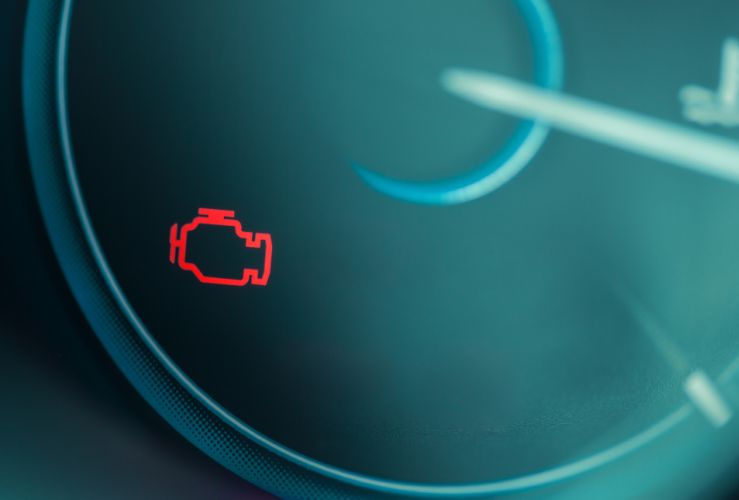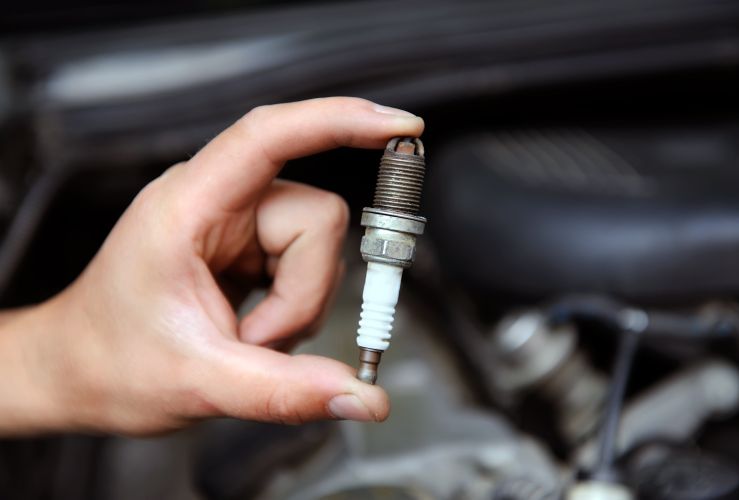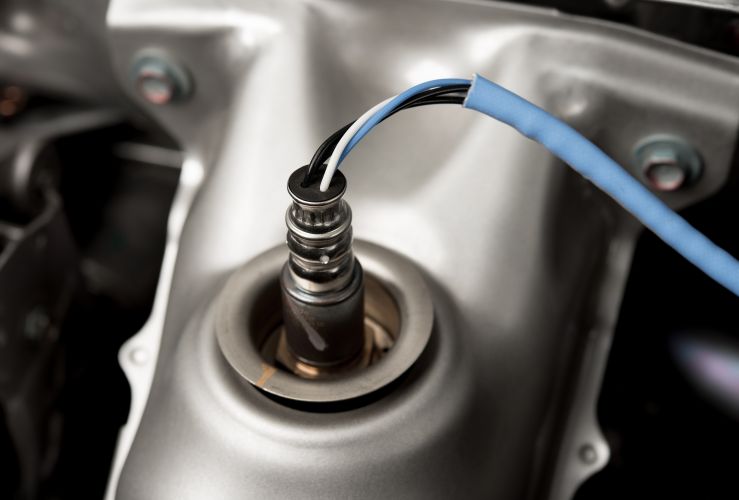Car stuttering or juddering can be an unsettling experience - giving you the sense you've lost full control of your car.
There are a number of reasons why your car may be juddering. In this article we’ll look at the most likely issues - and what you can do to solve them.
Why is my car juddering?
Finding out why your car is juddering or stuttering, whether it be when you are moving, or the car is juddering when idle, is often complicated because there are so many possible causes.
Can I drive my car if it’s juddering?
Any kind of judder poses a risk to you, your passengers and other road users, and should be addressed as soon as possible.
Whilst many causes of car juddering are not serious and can be easily remedied, there is a possibility that the juddering you are experiencing in your car may also indicate you have a serious problem with your vehicle.
You should look to get any issues with your car juddering looked at by a garage sooner rather than later to help avoid more costly repairs being needed down the line.

How do I stop my car from juddering?
Many juddering problems can be solved relatively easily and inexpensively, such as cleaning spark plugs or replacing spark plugs, while others can be more serious and more costly.
While the following will give you some idea of what the issue is, only a trained mechanic will be able to accurately pinpoint the cause - unless you have significant mechanical expertise.
As always, it’s important to stay on top of your car maintenance to prevent problems from developing in the first instance.
Why is my car with low mileage juddering?
If you're experiencing car stuttering, but your vehicle has relatively low mileage (say, 30,000 - 50,000 miles), it’s unlikely to be a serious problem.
The easiest and quickest way to diagnose the issue as to why your car is juddering is to take your vehicle to a garage.
If you're concerned your garage may carry out excessive tests or even exaggerate work done, you may wish to understand the possible causes first. This way you can at least sound like you understand the likely issues.
It goes without saying that if your car is still under warranty, you should contact your dealer to have it looked at.
Car juddering and engine light on
If your car is juddering, your 'check engine' light may well be on or come on intermittently. However, it may not come on at all even though you are experiencing a judder.
If your engine light is flashing and the car is juddering, it’s best to get your car checked by a trained mechanic.

Some issues with the car juddering can perplex even the most experienced mechanic. However, the cause is probably down to a faulty component - the trick is finding out which one!
Juddering While Changing Gears
If your car juddering is most noticeable when changing gears, it could point to transmission or clutch-related issues. Common symptoms include shaking when shifting from first to second gear, or difficulty engaging gears smoothly. Possible causes include:
- A worn or slipping clutch plate.
- Damaged gearbox mounts causing instability.
- Low transmission fluid, leading to insufficient lubrication.
- Warped flywheels or uneven clutch pressure plates.
If left unresolved, these problems may worsen over time, leading to costly repair bills or complete clutch failure.
Is the noise coming from the engine, transmission, suspension, or driveshaft?
It's important to identify if the juddering is related to the engine (engine speed issue), or the transmission/suspension/driveshaft (road speed issue).
If you have little mechanical knowledge then this will, of course, be a big challenge.
Here are some of the most common (and less common) causes of a juddering car:
Do your spark plugs need to be cleaned or replaced?
Worn-out spark plugs or the electrical cables attached to them are one of the most common causes of cars juddering.
A faulty spark plug could cause the engine to misfire. Any halt in the ignition of the fuel-air mixture could cause the engine to halt momentarily - resulting in a judder.
These cables connect distributors to the ignition coil. If a fault develops then ignition failure can occur.

Ignition coil failure
Ignition coils amplify the battery's voltage, creating the surge of electricity required to fire up the engine.
If an ignition coil fails, it won’t ignite the air-fuel mixture and a cylinder will stop operating momentarily, interrupting the engine's power production.
The more ignition coils and cylinders your car has, the less noticeable any judder will be.
Wheel balance
Is it possible your car juddering could be a result of your wheels not being property balanced?
The most noticeable sign of wheel imbalance is vibration.
If you can feel your car juddering through the steering wheel, especially at high speeds, a simple and relatively affordable fix such as wheel balancing may stop the car juddering.
How much does wheel balancing cost?
The price of wheel balancing can vary depending on the make and model of your car, but on average in the UK, wheel balancing costs around £5 to £10 per wheel.

Lambda/oxygen sensor: Air-fuel mixture may be 'too lean'
Your car is almost certain to have at least one oxygen sensor or 'lambda' sensor.
These reside in your exhaust system and tell the car's computer how much oxygen is in the fuel. The vehicle then adjusts or compensates based on this.
However, if the sensor is faulty, it may be giving an inaccurate reading.
This could be prompting your engine management system to operate on incorrect data, leading to a fuel mixture which is too 'lean' and this could cause your car to judder.
Oxygen/lambda sensors come into contact with very high temperatures and various contaminants, so will deteriorate over time.
They should last for around 100,000 miles, but like all auto parts, they will eventually fail.
Brakes judder
If you feel your brakes judder, your brake discs may have become deformed and uneven. Without a uniform surface, friction becomes intermittent, which can result in a juddering sensation.
Car Jolting
A number of possible causes could be behind your car jolting. These include:
- dirty fuel injector
- dirty spark plugs
- worn out spark plugs
- blockages
- dirty air filters
- blocked catalytic converter
- damaged cylinder
- damaged fuel lines
- defective carburetor
- damaged acceleration cables
- moisture on the distributor cap.
Visit your local garage to have the problem addressed.
How do you fix a car jerking when accelerating?
As outlined above, the reason for a car jerking when accelerating can often be caused by something as simple as dirty or worn spark plugs.
On the other hand, clogged catalytic converters can present a more major cause for a car jerking when accelerating.
A clogged catalytic converter can create back pressure, resulting in juddering. If a clogged converter is the problem, it may need to be replaced, with the average cost ranging between £150 and £900.
High idle
Is your car juddering when accelerating?
A high idle can result in the car juddering when accelerating.
A high RPM may send too much power through the transmission so that when you begin accelerating, the car jerks forward.
A high idle rate could be caused by a faulty engine management system or a vacuum leak in one or more of the hoses.
Faulty CV axle joints
Faulty CV (constant velocity) axles on the drive train can cause heavy vibrations or juddering. These axles are critical to the function of your vehicle, so any issue should be addressed promptly.
The CV axles essentially transfer power from the transmission and differential to your wheels, enabling you to move forward.
CV axles wear out over time.
One common sign you have under-par CV axles is a loud clicking, knocking or popping noise while turning. Such noises may become more pronounced when reversing, and may be the result of loose joints of a worn out CV axle.
Grease on tyre edges is another sign. This happens when the ‘boot’ around the axle leaks grease, which can in turn cause the axle to fail.
Vibrations can also be a sign of a CV axle problem, although this can be caused by other issues.
If you notice any of the above, take your vehicle in for a service.
Poor quality petrol
Although unlikely these days, poor quality fuel could cause problem with your engine.
It might be worth using a higher grade petrol.
Diesel fuel in particular is associated with fuel laundering.
While rare, it’s possible you have been sold a laundered product. This is fuel that has (illegally) had its dye removed (red in the UK, green in the Republic of Ireland). It is often of poor quality and sold at discounted prices.
In the unlikely event you think you’ve been sold laundered diesel, be sure to purchase your fuel from another outlet in future - and alert the police.
Blocked fuel injectors on diesel car
Diesel car juddering when driving a speed? Is your car losing power and juddering?
Blocked fuel injectors are one of the most common causes for a diesel car juddering when driving.
Fuel injectors become dirty and suffer deposit build ups over time.
To solve this issue, it is possible to use an injector cleaning kit. If you decide to clean the fuel injectors yourself, be sure to buy a fuel injection cleaning kit that is suitable for your vehicle.
Alternatively, book your car in with a reputable mechanic to have your fuel injectors cleaned professionally.
Fixing any issues with blocked diesel fuel injectors will not only improve the performance of your engine but will also improve your car's fuel economy.
Car juddering when pulling away?
Are you finding that your car judders when pulling off in first gear, but stops juddering when you move into a higher gear?
Clutch problems can cause a car to judder in first gear,
These problems could be down to wear or due to damage to the pressure plate.
If you have any leaks in the system which have got somewhere onto the surface of the clutch plate, this can also cause your car to judder.
Car juddering when idle?
Are you finding your car is shaking when idle? If so, your engine may not be receiving a sufficient and continuous amount of clean fuel. This may relate to a problem with an electrical component such as the crankshaft sensor, or a leak in the vacuum side of the engine.
Juddering while idle may also be caused by a buildup of grime and other debris in either your air filter or the fuel injection system, or faulty spark plugs.
Unless you have a considerable amount of mechanical expertise, you should not attempt to replace any faulty parts yourself. Instead, take your vehicle to a reputable garage.
Ideally, you should have your vehicle serviced around every 10,000 miles - or once a year. You should also keep an eye out for signs of dirt or grime build up in the engine - such as oil spatter or sludge on your vehicle’s exterior, or the appearance of the ‘check engine’ or ‘change oil’ lights. Also ensure the contents of your oil pan are clear.
Car juddering at low revs?
Juddering at low revs could be caused by something as simple as moisture in the distributor cap.
Condensation inside the distributor cap can cause the car engine to misfire when accelerating at low speeds.
Another possibility could be to do with the engine mounts.
Loose or fatigued engine mounts, which hold the engine to the chassis, can often cause a car to judder at low revs.
Why is my car juddering when I accelerate?
A car juddering when accelerating can often be attributed to dirty or worn spark plugs or the cables attached to them.
As spark plugs and cables approach the end of their lifespan, or become dirty, they will often fail to properly ignite the fuel in the piston chambers of the engine, which can cause a judder,
A clogged catalytic converter may also cause issues with juddering when accelerating.
A failing catalytic converter creates back pressure that prevents the engine from functioning and running freely. These irregular bursts of pressure can result in the juddering.
If you think that a clogged catalytic converter may be the cause of your car juddering when accelerating, you should take your car to a garage.
Clogged catalytic converters often need to be replaced. The average UK catalytic converter replacement costs between £150 and £900.
Juddering in Diesel Cars
Diesel vehicles can be particularly prone to juddering, often for reasons linked to their fuel systems. Blocked fuel injectors, dirty EGR (exhaust gas recirculation) valves, and clogged diesel particulate filters (DPFs) are among the most common culprits.
Symptoms may include loss of power when accelerating, rough idling, and visible smoke from the exhaust.
Should I visit a garage if my car is juddering?
Unless you understand the mechanics of your car very well or are prepared to spend a lot of time learning, your best bet is to visit a reputable garage.
The above information should, however, provide some indication as to what the issue may be in the first instance.
It may be something as straightforward as a faulty spark plug - which you may be able to address yourself - or it could be something more complex, requiring the diagnostic tools and skills of an experienced mechanic.
Note: You should always check your vehicle handbook for any fault remedy before carrying out any work on your vehicle. If you are unsure of what is required to fix any problems, please consult a professional.
Summary: Key Takeaways
- Car juddering can stem from simple maintenance issues such as dirty spark plugs or a clogged fuel injection system, through to more serious mechanical faults.
- Spark plug replacement in the UK averages £50–£300, making it a relatively low-cost first check.
- Clogged catalytic converters often cause juddering when accelerating and typically cost between £150–£900 to replace.
- Juddering during gear changes may signal clutch or transmission issues; gearbox repairs generally cost £200–£500, with full replacements much higher.
- Early diagnosis of problems such as worn brake discs, spark plug faults, or fuel injection system blockages can prevent minor issues escalating into expensive repairs.
- Persistent juddering should always be investigated by a reputable garage to ensure safety and avoid long-term damage.
Breakdown cover
Current breakdown cover not yet due to expire? Sign up below to save money!
If you currently have breakdown cover with another provider, why not sign up here to receive the latest deals and discounts from Start Rescue when your current policy is due to expire.





